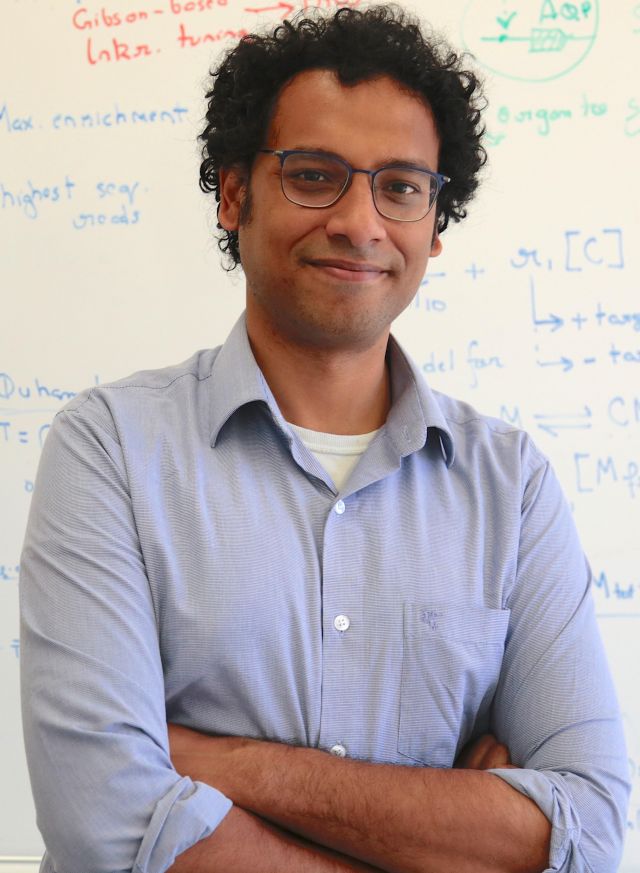Imaging Biological Dark Matter With Proteins, Protons, and Photons

ONLINE CBE SEMINAR
All Fall 2020 CBE Seminars will be hosted online via Zoom. RSVP to receive zoom link by emailing info@bioengineering.ucsb.edu.
Zoom will open after the host has joined at the start of each seminar. You can ask questions through the chat forum and by raising your "hand" and the speaker will call on you.
Speaker
Arnab Mukherjee, Ph.D.
Assistant Professor
Chemical Engineering
University of California, Santa Barbara
Abstract
Many of today’s key biomedical questions, such as how neurons communicate, tumors proliferate, and immune cells find pathogens, require cells to be studied in the context in which they are present. While genetic technologies such as fluorescent reporters excel in imaging molecular-scale events in cultured cells and translucent animals, they scale poorly to larger animals. MRI on the other hand is unrivaled in its ability to noninvasively obtain high resolution images at any depth. However, synthetic MRI agents are limited in their ability to image cell function and the handful of MRI-compatible genetic labels available today provide insufficient detection sensitivity and response to biological signals. By working at the intersection of protein and cell engineering, we strive to develop genetically encoded MRI reporters that overcome these challenges. In this talk, I will highlight our most recent efforts towards (1) creating the first protein-based MRI reporter for calcium and (2) chemogenetically modulating MRI contrast to make cells clearly visible by erasing background signals.
BIO
Arnab Mukherjee is an Assistant Professor of Chemical Engineering department at the University of California, Santa Barbara where his lab set up shop in the summer of 2018. Prior to arriving at UCSB, he completed his postdoc at Caltech and obtained his Ph.D. at the University of Illinois at Urbana-Champaign. Research in the Mukherjee group has been recognized with notable recent awards including the Maximizing Investigators’ Research Award (NIH), Discovery Award (DoD), and a NARSAD Young Investigator Award (Brain & Behavior Research Foundation).